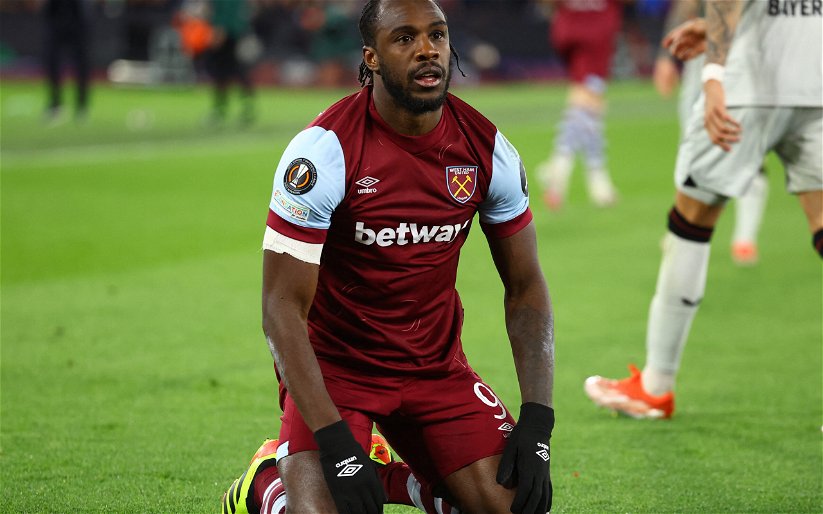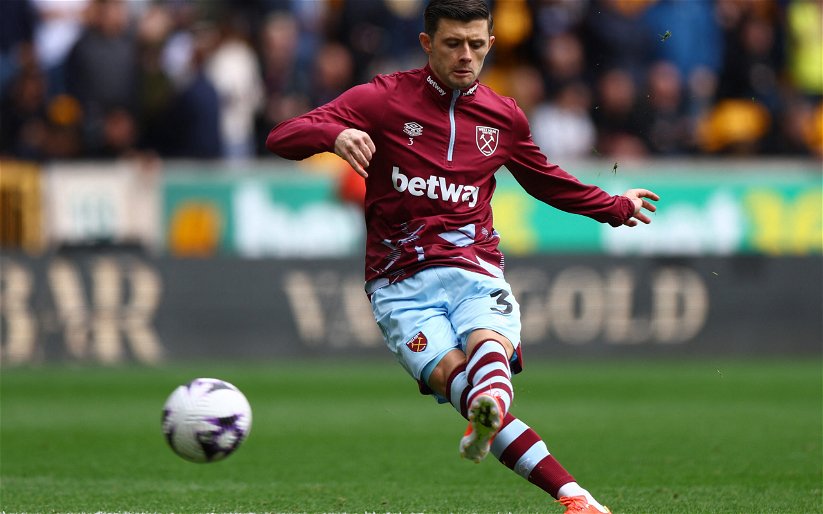 Former West Ham goalkeeper David James wrote an interesting piece for The Observer last weekend. In his column, James suggested the Hammers’ proposed move to the Olympic Stadium has the potential to propel the east London club to the same level as champions Manchester City.
Former West Ham goalkeeper David James wrote an interesting piece for The Observer last weekend. In his column, James suggested the Hammers’ proposed move to the Olympic Stadium has the potential to propel the east London club to the same level as champions Manchester City.
Of course, James’ suggestion is loaded with ifs, buts and maybes but it is still one we must consider because the prospect of moving to Stratford is, after all, more real than ever before for the Hammers. So should fans worry that this potential shot at glory is counterbalanced by the chance of West Ham losing its identity?
Are you on Facebook? Excellent, so are we http://www.facebook.com/#!/pages/ForeverWestHamcom/200938616608282
James, the Hammers’ number one between July 2001 and January 2004, alleged that David Gold, David Sullivan and Karren Brady may only be moving West Ham to the Olympic Stadium to place the club in the shop window and finally attract those fortunes that are always hiding.
As we all know, Man City, another of James’ old clubs, have already benefitted from such a set of circumstances.
City left Maine Road, their home for 80 years, and moved to the City of Manchester Stadium in 2003. Similarly to the Olympic Stadium, their new ground was initially built for athletics, namely the 2002 Commonwealth Games, and was then converted to host Premier League football.
In 2008, City were taken over by the Abu Dhabi United Group, lead by (get ready for this) Sheikh Mansour bin Zayed bin Zayed Al Nahyan, who is the richest man in football with an estimated wealth of £20bn.
Since that takeover, Man City have won the FA Cup, the Premier League and qualified for the Champions League. While they look likely to have failed to defend their league title, they remain in second place and look guaranteed to qualify for the Europe’s elite club competition again this season, they are also still in with a chance of winning the FA Cup again.
Before their FA Cup win in 2011, City had not won a trophy since 1976 and during that gap they even slipped as low as the third tier of English football in 1998.
It is safe to say then, that City’s new home – now called the Etihad Stadium as part of a highly lucrative sponsorship deal with Etihad Airways – is a much happier one. And it is unlikely that the takeover and subsequent success would have happened if City did not already have the foundations of a top class stadium to build upon. West Ham fans must be crazy if they were not desperate to see the Olympic Stadium do the same for them.
Asking a Hammers fan if they want to be like Man City may be a no-brainer to some. Offer anyone the chance to win the FA Cup and the league and see their club become one of the biggest in the country and they should bite your hands off. But with great power comes great hatred.
Looking for experience? Just want to be heard outside of the Boleyn? We are currently looking for writers, drop us an email at foreverwestham@snack-media.com for more details
City have gone from being the jovial noisy neighbours of rivals Manchester United, to a club that is despised by some for the way they have ‘bought success’. They have demonstrated – as Chelsea did before them – that the pay-off with the model of sudden and huge investment is a complete change in perception.
Many West Ham followers are already against the move to Stratford because they quite rightly believe the Boleyn Ground is a massive part of the club’s identity and leaving that will change West Ham forever. Whereas those who support the move believe that change is necessary if the Hammers are to just keep pace with the top sides, let alone challenge them for honours.
The shift in the perception of Man City suggests moving home causes irrevocable changes to other parts of a club. But anyone who has seen the documentary Blue Moon Rising, which charts City’s chase for silverware in the 2009/2010 season, will know that the club is determined to cling to its past while ushering in a new age of unprecedented glory. So achieving great things and harbouring history are not mutually exclusive. It is only what fans of other teams think that changes, and who cares what they think?
Nevertheless, playing with the club’s legacy and using the Olympic Stadium as a beacon to entice wealthy investors is a risky strategy. That’s if it is, in fact, the strategy for West Ham. The claret and blue Army should hope it is, though, because the resounding success of London 2012 and how the Hammers’ prospective new home housed that, could really attract the wealth the club needs to be up there with the top teams.
Everything in nature – and business – has to adapt to its surroundings in order to survive. The environment West Ham are in, ie. the Premier League, is in a state of flux, with money apparently the key to endurance and victory. Therefore, the Hammers either have to evolve to suit the demands of this habitat or risk carving out an existence as a bottom feeder.
The Olympic Stadium could be fundamental in making West Ham a predatory force in the top flight, and maybe a team that are not just ‘like’ the champions, but are the champions.
Read David James’ column for The Observer by following the link here: http://www.guardian.co.uk/football/blog/2013/mar/09/olympic-stadium-west-ham-home
Follow me on Twitter: @JoellBlogs
Forever West Ham is now on Google+, so be sure to find us on there by quite simply (and rather unsurprisingly) searching ‘Forever West Ham’



This is a fantastic written piece. Take my hat off to you my friend.
With Big Sam in charge we have already lost our identity so there is nothing to lose if we do get a massively wealthy owner. At least City play football unlike us.
Sorry, not going to happen. To “do a City” would require massive investment (a billion?), but the FFPR (both in the Premier League and Europe) has put a stop to that. For good.